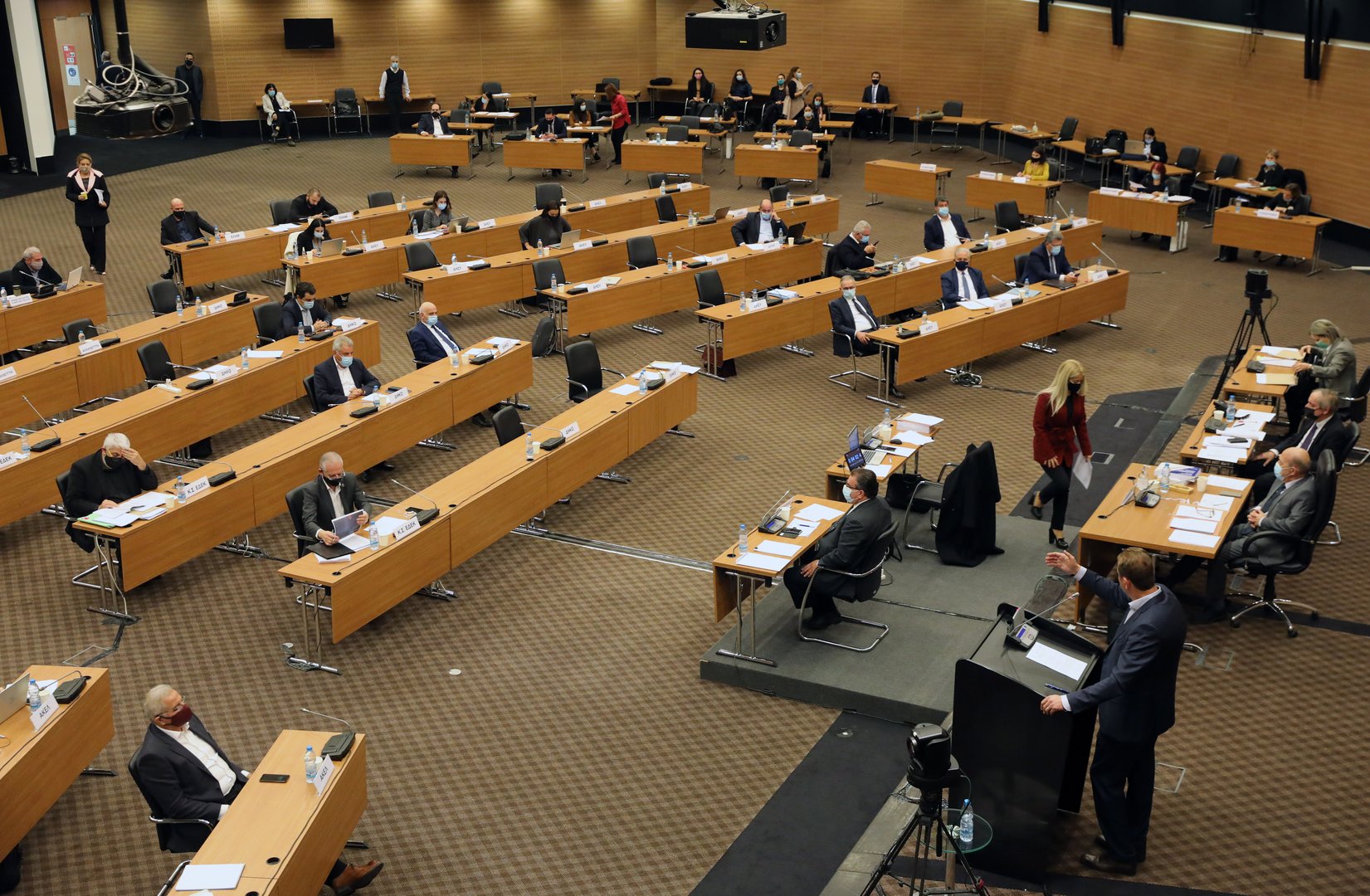In a turnaround, opposition parties – particularly Diko – on Thursday agreed that a government bill on state-backed loans will go to the plenum for a vote on April 22 just before the House dissolves ahead of the legislative elections.
The issue had been a sticking point for weeks, with the government accusing the opposition of effectively filibustering on the bill that would see liquidity released to small and medium-sized businesses, starved of cash due to the coronavirus-related slump.
Earlier, Diko had accused the government of tabling the bill too late, saying there was not enough time for MPs to review, so it would have to wait until the next parliamentary term when the House reconstitutes.
Firing back, the government had lambasted Diko for using procedural pretexts to delay passage of the bill.
But during a meeting of party leaders on Thursday it was decided the bill will go to the House floor on April 22 – literally at the eleventh hour before parliament dissolves.
The item of legislation is to be fast-tracked at the House finance committee.
Speaking later, committee chair Christiana Erotokritou sought to take credit for the development:
“This bill shall be at the last plenary session on April 22, not thanks to the government, nor to Disy and Mr Neophytou, but thanks to Diko, Nicholas Papadopoulos and the finance committee.”
Previously, Finance Minister Constantinos Petrides had harangued opposition parties, saying they were playing petty politics ahead of the parliamentary elections.
He said the bill had been prepared after months of consultations with all the parties but at this critical hour, parliament chose to deprive businesses of €1bn in guarantees and €1.4bn in liquidity.
Showing goodwill, the government sent the parties a revised document, incorporating 13 additional recommendations and seeking views anew.
The bill was submitted to parliament after incorporating more suggestions from the parties, he added.
The state-backed loan scheme has been a bone of contention between the government and opposition parties since last year when it was first introduced.
Petrides eventually withdrew it after weeks of discussions, saying opposition party amendments had rendered it unenforceable.






Click here to change your cookie preferences